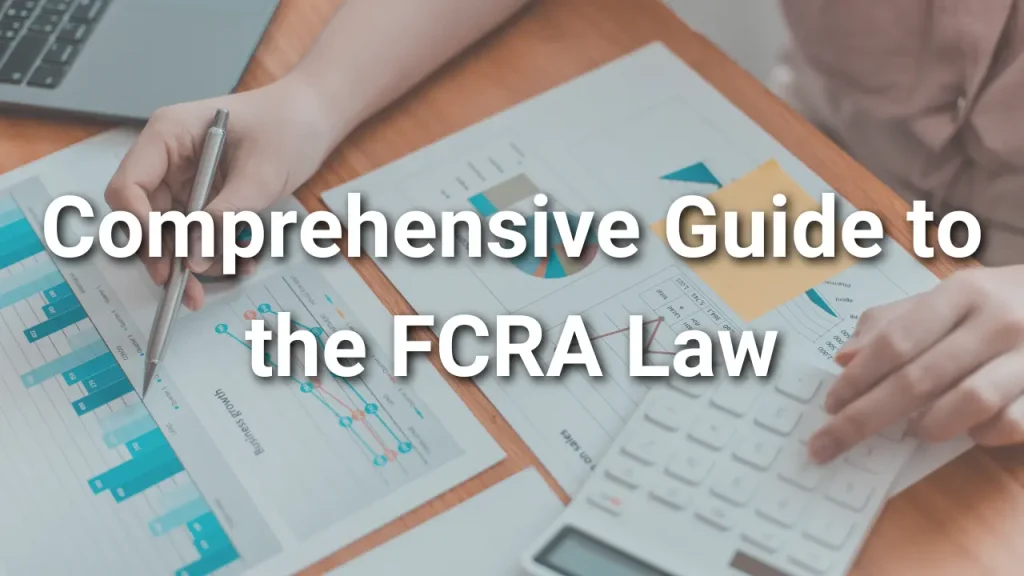Credit reporting plays a pivotal role in the financial life of every American. It determines everything from eligibility for loans to the rates of interest one pays.
However, credit report errors such as the mixed files issue can wreak havoc on a person’s credit report. This article explains the mixed files issue in credit reports and the laws under the Fair Credit Reporting Act (FCRA) that govern it.

Understanding FCRA and Its Impact on Credit Reporting
The FCRA, passed in 1970, was designed to promote the accuracy, fairness, and privacy of personal information in the files of credit reporting agencies. It governs how credit reporting agencies (CRAs) handle consumers’ credit information, ensuring that the information they provide is accurate and up-to-date.
CRAs are required to correct or delete inaccurate, incomplete, or unverifiable information in their reports.
Exploring Mixed Files Issue in Credit Reports
A mixed file occurs when a CRA merges the credit information of two or more consumers into a single file. This can happen due to similar names, addresses, or social security numbers.
The consequences The effects can be devastating, leading to declined credit applications, higher interest rates, or even job loss. For instance, a person with a clean credit history could suddenly be saddled with someone else’s debt.
FCRA Compliance and Remedies for Mixed Files Issue
Under the
, CRAs must investigate disputed items in a consumer’s credit report. If a mixed file issue is identified, the CRA must correct the error promptly. Consumers also have the right to sue CRAs for damages caused by negligent or willful non-compliance with the FCRA.
Proactive Measures to Prevent Mixed Files Issue
Consumers can take proactive steps to prevent mixed file issues. Regular monitoring of credit reports can help identify any inaccuracies early. Prompt reporting of discrepancies and clear communication with CRAs and lenders can expedite the resolution process. If necessary, legal assistance can also be sought.
Case Studies and Lawsuits Related to Mixed Files Issue
Several lawsuits highlight the severity of the mixed files issue. For instance, in 2013, a woman won an $18.6 million lawsuit against Equifax for mixing her credit file with another person’s. This case underscores the importance of consumer vigilance and the potential for legal recourse under the FCRA.
Recent Developments and Future Outlook
The FCRA has undergone several amendments to address emerging challenges like identity theft. Technological advancements and improved data management practices are also expected to reduce the occurrence of mixed files. However, industry efforts to improve credit reporting accuracy remain ongoing.
Understanding the mixed files issue and its laws is crucial for every consumer. Regularly monitoring credit reports, promptly reporting inaccuracies, and exercising one’s rights under the FCRA can protect consumers from the negative impact of mixed files.
References:
Federal Trade Commission. (2018). Fair Credit Reporting Act. https://www.ftc.gov/enforcement/rules/rulemaking-regulatory-reform-proceedings/fair-credit-reporting-act
Consumer Financial Protection Bureau. (2019). What is a mixed credit file? https://www.consumerfinance.gov/ask-cfpb/what-is-a-mixed-credit-file-en-327/
National Consumer Law Center. (2017). Fair Credit Reporting. https://library.nclc.org/book/fair-credit-reporting
Equifax. (2020). How to dispute credit report information. https://www.equifax.com/personal/disputes/
NBC News. (2013). Woman wins $18.6 million in lawsuit over credit report errors. https://www.nbcnews.com/businessmain/woman-wins-18-6-million-two-year-battle-over-credit-6c10772195